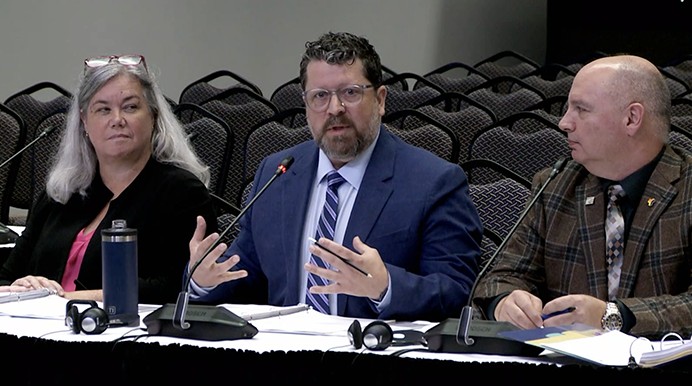
By Ahmad Hathout
The Canadian Association of Broadcasters (CAB) is asking the CRTC to reduce what it calls outdated and unnecessary reporting requirements and hasten ownership transaction applications.
According to the letter, sent Thursday, Canadian broadcasters must submit dozens of reports to the regulator on a monthly and annual basis, “many of which are duplicative or overlap to a considerable extent” because their necessity have “never been reassessed.”
These reports, as outlined in the letter, include annual financial and monthly television programming log evaluation reports, local TV news audits, independent and regional production reports, women in production reports, emerging and indigenous artist reports, tangible benefits and post-ownership transaction reports, accessibility plans and progress reports, cultural diversity annual reports, closed-caption reports on quality and accuracy rates and alcohol advertising reports.
“It is clear that the Commission does not have the resources to review each and every one of these reports – no more so can broadcasters afford to complete these reports each year (or each month) for them only to be shelved once filed with the Commission,” the letter says. “This long list needs to be rationalized, streamlined and ultimately reduced to only those reports the Commission actually needs and actually reviews.”
Some of the details required in monthly television logs are no longer relevant, the CAB claims, including information on advertising because they are no longer subject to duration limits and minute-by-minute information by program genre because the commission no longer regulates the genre.
Furthermore, “much of the information” in the monthly television logs are already included in the annual regional and independent production reports, says the CAB, which recommends that the CRTC completely eliminate those monthly TV logs.
“Instead, we recommend that the Commission explore a limited audit-based approach, similar to the one it has adopted for radio, while remaining sensitive to the unique qualities of television scheduling. For example, broadcasters could be called upon to provide a report for a specific month. If any issues are identified, broadcasters could be invited to engage in dialog with the Commission, or submit a report for another month during the year,” the letter says, adding in the alternative, the CRTC could update the log filing system to reduce the complexity of the reporting requirements.
Bell and Rogers, executives from which are on the board of the CAB, recommended to a panel of CRTC commissioners earlier this year that it revisit what reporting it requires of local stations.
The CAB is also recommending the CRTC streamline radio performance evaluations, which it says include “painstaking” timing of such things as music, advertising and promos and demands for evidence that songs are “Canadian.”
“The amount of time and effort required to deal with these review processes and respond to detailed questions is substantial, and especially burdensome to small and medium-sized stations that do not have the resources to be able to handle such evaluation efforts, especially given increased financial challenges,” the letter says.
The CRTC said in its radio modernization policy that its first step in addressing non-compliance is to issue a warning letter and initiate dialog. But the CAB says this should be the second step; the first step should be some form of notification, it says, “but require no additional effort until the next evaluation, at which point, if necessary, a dialog could begin.”
The CAB is also asking that the commission do away with “forensic” requirements to show proof of Canadian content development (CCD) payments, such as producing receipts when, in some cases, those cannot be obtained. If not that, then the CRTC needs to streamline its CCD reporting and audit requirements, the letter asks.
“The Commission must also simplify the Cancon reporting requirements – it is unclear why the Commission needs multiple reports in addition to audio recordings, including a music list, a self-assessment report, detailed program logs, as well as detailed descriptions of how the licensee meets its various conditions of service,” the CAB adds.
The trade group also wants the CRTC to speed up ownership applications. Acquisitions, the CAB says, often take between eight and 18 months to complete, as the commission must go through a hearing and issue a new licence. But this is having a financial impact on both the buyers and the sellers, the CAB says.
“The current approach for producing notices of public hearing were developed at a time when such notices were published on paper,” the CAB explains. “In today’s web-based environment, notices of consultation can be updated in real time.
“We recommend a Part 1-like approach to (non-appearing) ownership applications. These should be published as soon as they are complete on an ongoing basis. With non-appearing hearings scheduled virtually each month, applications could be added up to 30 days before the intervention deadline.”
The CAB argues that these measures will help the CRTC achieve its goal of reducing red tape.
Screenshot of CAB President Kevin Desjardins at a CRTC hearing


